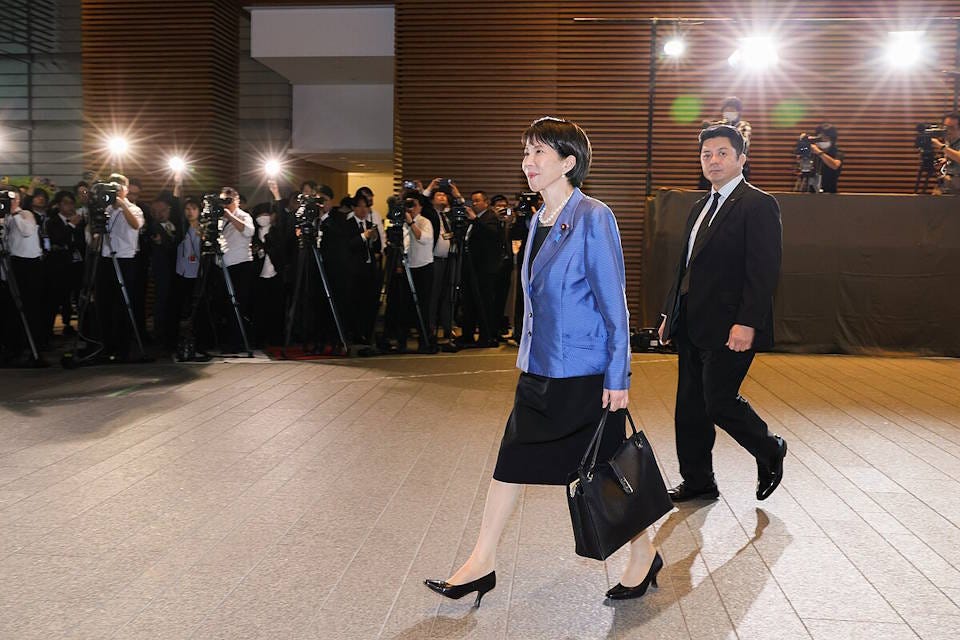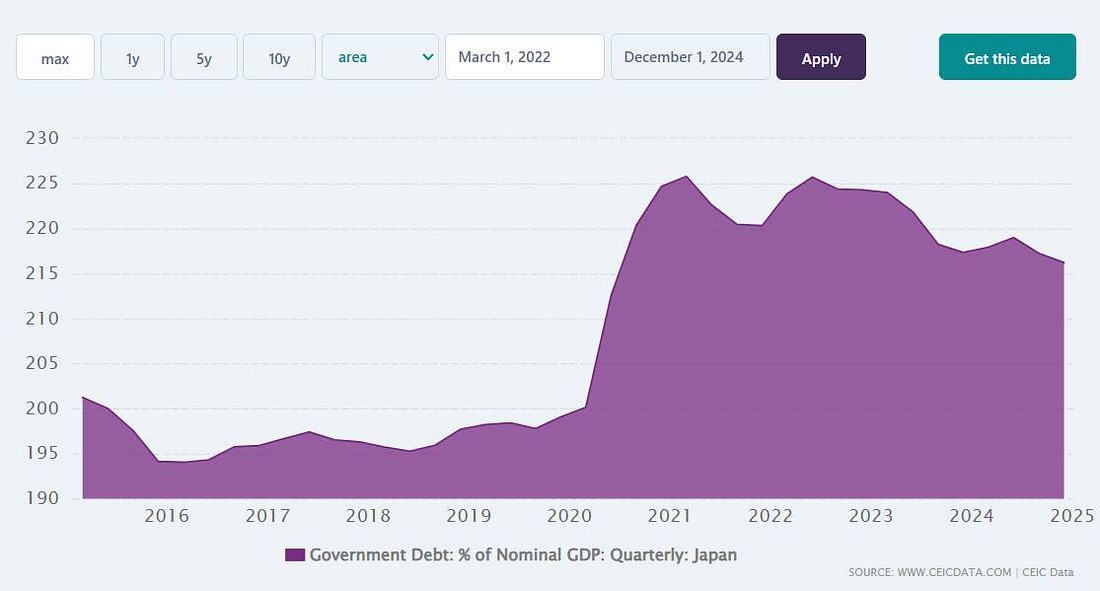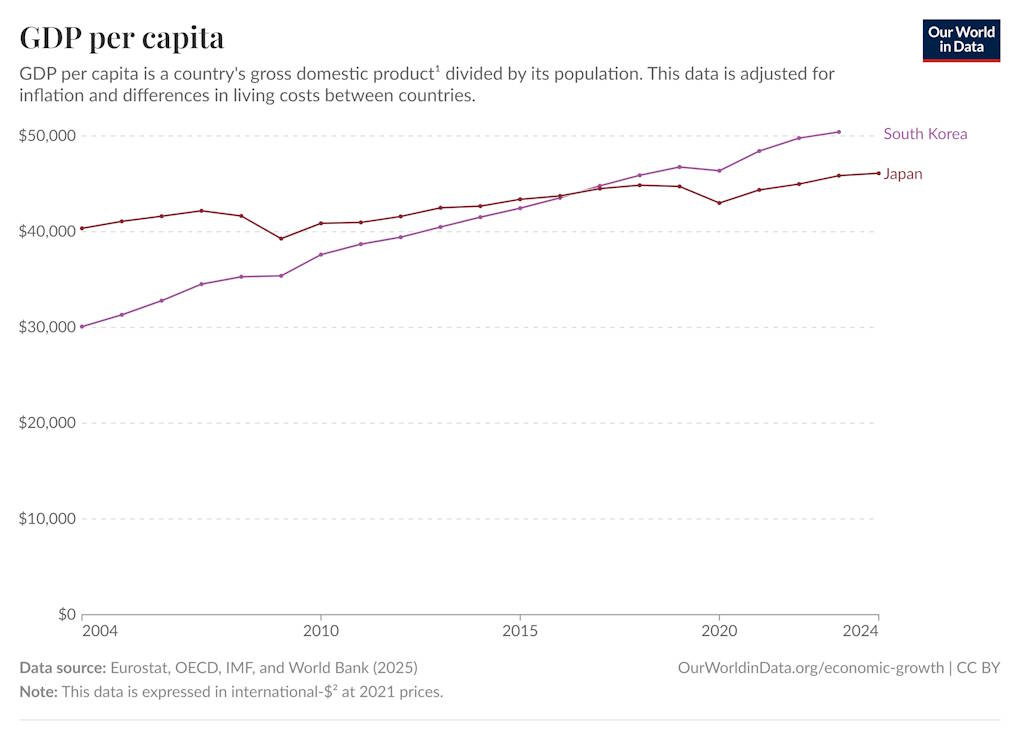|
 |
Japanese prime ministers tend to be gray, unimpressive placeholders who don’t last very long in office. But every once in a while, an important leader shows up who gets big things done and stays in office for a while — Koizumi Junichiro in the 2000s and Abe Shinzo in the 2010s were the two most recent examples. It’s not always easy to tell who is going to be one of these when they come into office — Abe himself even had a short, unimpressive first term in the 2000s before he came back in 2012 and changed Japan utterly.
There’s a lot of hope that Takaichi Sanae, who just became prime minister, will be one of the transformative ones. She’s modern Japan’s first female leader, which may have contributed to her very high popularity, especially among young people. She’s also a tough-minded conservative, famous for her hawkish views on defense and on China.¹ And in a party known for gray leaders who blend into the background, she stands out as a colorful individual, with her history as a biker and a heavy metal drummer (in fact, she still drums for fun).
Most coverage of Takaichi so far has focused on her personality, on boundary-breaking, or on her relationship with Donald Trump. Indeed, Takaichi seems to have charmed Trump on his first trip there:
President Donald Trump hailed the US’s alliance with Japan, reaffirming ties with a longstanding partner and praising new Prime Minister Sanae Takaichi on her plans to ratchet up defense spending as the pair met in Tokyo.
“I want to just let you know anytime you have any question, any doubt, anything you want, any favors you need, anything I can do to help Japan, we will be there,” Trump said. “We are an ally at the strongest level.”
But while maintaining good relations with the U.S. is certainly a very important task, there are also lots of other economic problems that urgently confront the new Takaichi administration. The country’s living standards are stagnant, having fallen behind those of South Korea some time ago:
And in fact this is doubly important for Japan right now, because it’s being menaced by its much larger neighbor, even as American power in the region slowly fades. Even if Japan continues to rearm to defend itself against a potential Chinese threat, it will need an economy that’s capable of supporting that rearmament.
Fortunately, Japan is in an OK macroeconomic situation right now. Government debt, the country’s thorniest problem, is actually falling as a percent of GDP, thanks in part to higher inflation and in part to rising corporate profits and tax revenues:
 |
The deflation problem that bedeviled Japan for decades has finally been defeated. And at the same time, unemployment in Japan remains very low:


